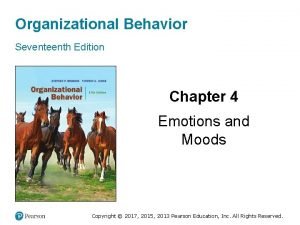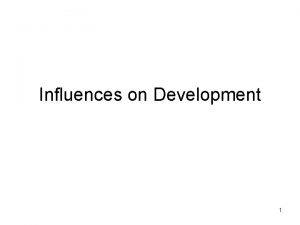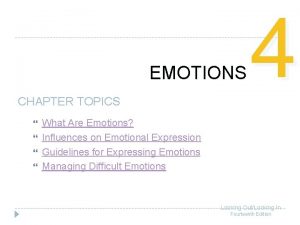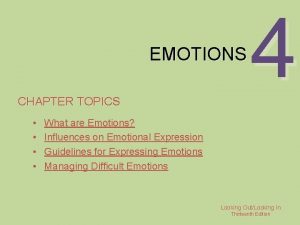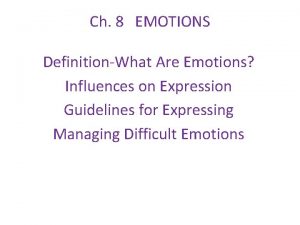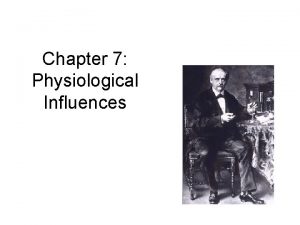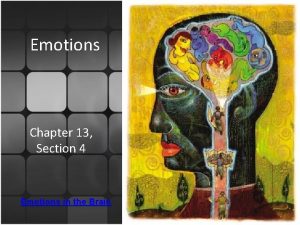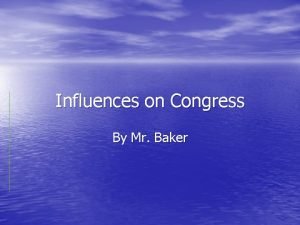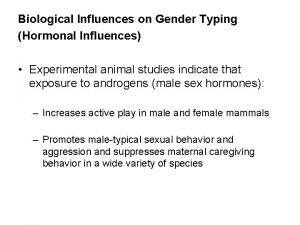Emotions CHAPTER TOPICS 4 What Are Emotions Influences























- Slides: 23

Emotions CHAPTER TOPICS • • 4 What Are Emotions? Influences on Emotional Expression Guidelines for Expressing Emotions Managing Difficult Emotions Looking Out/Looking In Fourteenth Edition

What Are Emotions? • Physiological Factors • When person has strong emotions, bodily changes occur • • • Increased heart rate Rise in blood pressure Increase in adrenalin Elevated blood sugar Slowing of digestion Dilation of pupils • Flooding impedes problem solving EMOTIONS: FEELING, THINKING, AND COMMUNICATING 2

What Are Emotions? • Nonverbal Reactions • Feelings often apparent by observable changes • Appearance changes • Behavioral changes EMOTIONS: FEELING, THINKING, AND COMMUNICATING 3

What Are Emotions? • Nonverbal Reactions • Easy to tell when someone is feeling strong emotion, more difficult to be certain what emotion might be • Sometimes nonverbal behavior may cause emotional state • Verbal and nonverbal expressions often interconnected EMOTIONS: FEELING, THINKING, AND COMMUNICATING 4

What Are Emotions? • Cognitive Interpretations • The mind plays an important role in determining emotional states • Experience comes primarily from label we give to physical symptoms • Reappraisal • Rethinking meaning of emotional charged events that alter emotional impact EMOTIONS: FEELING, THINKING, AND COMMUNICATING 5

What Are Emotions? • Verbal Expression • Sometimes words are necessary to express feelings • There isn’t much agreement about what emotions are, or about what makes them basic • It is important to use language that represents degree of intensity • Problems arise for people who aren’t able to talk about emotions constructively EMOTIONS: FEELING, THINKING, AND COMMUNICATING 6

Influences on Emotional Expression • Personality • There is a clear relationship between personality and the way we experience and express emotions • Extroverts tend to report more positive emotions • Neurotic individuals tend to report more negative emotions • Personality doesn’t have to govern your communication satisfaction EMOTIONS: FEELING, THINKING, AND COMMUNICATING 7

Influences on Emotional Expression • Culture • A significant factor that influences emotional expression in different cultures is whether that culture is: • Individualistic (United States and Canada) • These cultures feel comfortable revealing their emotions to people with whom they are close • Collectivistic (Japan and India) • These cultures prize harmony and discourage expressions of negative emotions which may upset relationships EMOTIONS: FEELING, THINKING, AND COMMUNICATING 8

Influences on Emotional Expression • Gender • Biological sex is the best predictor of the ability to detect/interpret emotional expression • Research suggests that there is some truth to the unexpressive male • While men and women experience the same emotions, there are differences in the ways they express them EMOTIONS: FEELING, THINKING, AND COMMUNICATING 9

Influences on Emotional Expression • Social Conventions • The unwritten rules of communication discourage the direct expression of emotion • Emotion labor • Managing or even suppressing emotions is both appropriate and necessary EMOTIONS: FEELING, THINKING, AND COMMUNICATING 10

Influences on Emotional Expression • Fear of Self-Disclosure • In a society that discourages the expression of emotions, revealing them can seem risky • Someone who shares feelings risks unpleasant consequences EMOTIONS: FEELING, THINKING, AND COMMUNICATING 11

Influences on Emotional Expression • Emotional Contagion • The process by which emotions are transferred from one person to another • Is it possible to catch someone’s mood? • Emotions become more infectious with prolonged contact EMOTIONS: FEELING, THINKING, AND COMMUNICATING 12

Guidelines for Expressing Emotion • There is not a universal rule for expression of emotion • There will be times when you can benefit from communicating your feelings clearly and directly • Research supports value of expressing emotions appropriately • Chance to improve relationships • Isn’t a simple matter EMOTIONS: FEELING, THINKING, AND COMMUNICATING 13

Guidelines for Expressing Emotion • Recognize your feelings • Recognize the difference between feeling, talking, and acting • Expand your emotional vocabulary • Share multiple feelings EMOTIONS: FEELING, THINKING, AND COMMUNICATING 14

Guidelines for Expressing Emotion • Consider when and where to express your feelings • Accept responsibility for your feelings • Be mindful of the communication channel EMOTIONS: FEELING, THINKING, AND COMMUNICATING 15

Managing Difficult Emotions • Facilitative and Debilitative Emotions • Facilitative Emotions • Emotions which contribute to effective functioning • Debilitative Emotions • Emotions which detract from effective functioning • Intensity • Duration • Rumination EMOTIONS: FEELING, THINKING, AND COMMUNICATING 16

Managing Difficult Emotions • Sources of Debilitative Emotions • Physiology • Our genetic makeup • Emotional memory EMOTIONS: FEELING, THINKING, AND COMMUNICATING 17

Managing Difficult Emotions • Self-Talk • Interpretations people make of an event, during the process of self-talk that determine their feelings Event Thought Feeling Being called names “I’ve done something wrong. ” hurt, upset Being called names “My friend must be sick. ” concern, sympathy EMOTIONS: FEELING, THINKING, AND COMMUNICATING 18

Managing Difficult Emotions • Irrational Thinking and Debilitative Emotions • The Fallacies • The Fallacy of Perfection • The belief that a worthwhile communication should be able to handle every situation • The Fallacy of Approval • That it is vital to gain the approval of virtually every person EMOTIONS: FEELING, THINKING, AND COMMUNICATING 19

Managing Difficult Emotions • Irrational Thinking and Debilitative Emotions • The Fallacy of Shoulds • The inability to distinguish between what is and what should be • The Fallacy of Overgeneralization • Basing a decision on limited information • When we exaggerate shortcomings • The Fallacy of Causation • The irrational belief that emotions are caused by others rather than by one’s own self-talk EMOTIONS: FEELING, THINKING, AND COMMUNICATING 20

Managing Difficult Emotions • Irrational Thinking • The Fallacy of Helplessness • Satisfaction in life is determined by forces beyond your control • The Fallacy of Catastrophic Expectations • The assumption that if something bad can happen, then it is going to happen EMOTIONS: FEELING, THINKING, AND COMMUNICATING 21

Managing Difficult Emotions • Minimizing Debilitative Emotions • • Monitor your emotional reactions Note the activating event Record your self-talk Reappraise your irrational beliefs EMOTIONS: FEELING, THINKING, AND COMMUNICATING 22

Chapter Review • • What Are Emotions? Influences on Emotional Expression Guidelines for Expressing Emotions Managing Difficult Emotions EMOTIONS: FEELING, THINKING, AND COMMUNICATING 23
 Antigentest åre
Antigentest åre Chapter 9 topics in analytic geometry
Chapter 9 topics in analytic geometry 3 healthful ways to manage difficult emotions
3 healthful ways to manage difficult emotions Intentional use of unfriendly or offensive behavior
Intentional use of unfriendly or offensive behavior Emotions and moods in organizational behavior
Emotions and moods in organizational behavior Chapter 2 personality self-esteem and emotions
Chapter 2 personality self-esteem and emotions Bob fosse influences
Bob fosse influences Major influences on business buyers
Major influences on business buyers Roy lichtenstein influences
Roy lichtenstein influences Normative history-graded influences are
Normative history-graded influences are Internal influences on a business
Internal influences on a business Environmental influences
Environmental influences Environmental factors affecting communication
Environmental factors affecting communication Latitude strongly influences climate because
Latitude strongly influences climate because Environmental influences
Environmental influences It is everything that surrounds us
It is everything that surrounds us Normative age graded influences
Normative age graded influences Social influences on consumer behavior
Social influences on consumer behavior Annie leibovitz education
Annie leibovitz education Analyzing influences definition
Analyzing influences definition Which of the following is a pronatalist pressure?
Which of the following is a pronatalist pressure? Table setting worksheet
Table setting worksheet Example of cultural influences
Example of cultural influences Influences on parliament law making
Influences on parliament law making




